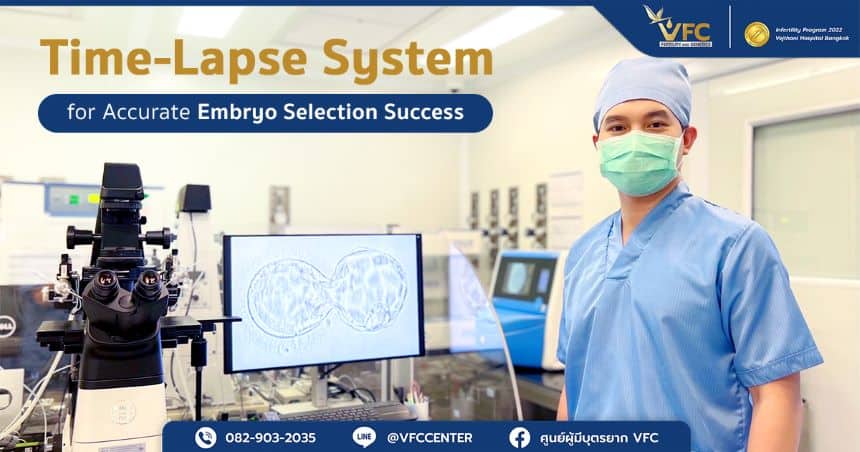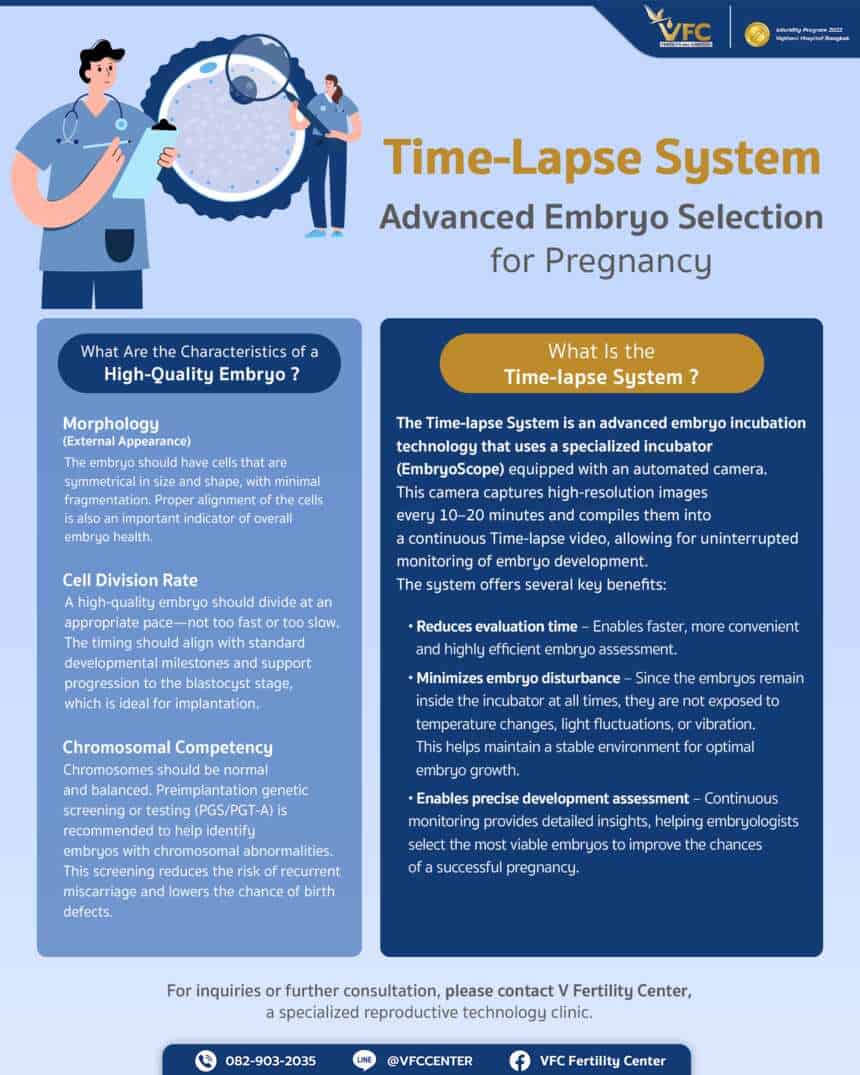
For couples facing infertility, ICSI (Intracytoplasmic Sperm Injection) is one of the most widely used assisted reproductive techniques. However, a key factor in achieving a successful pregnancy is embryo selection, specifically selecting embryos of the highest quality.
Traditionally, embryologists had to remove embryos from the incubator periodically to assess their development. Today, with the introduction of the Time-Lapse System, doctors can monitor embryo development in real time without removing them from the incubator. This approach minimizes disruption, provides more accurate assessments, and significantly increases the chances of a successful pregnancy.

What Are the Characteristics of a High-Quality Embryo?
High-quality embryos are critical to successful implantation and pregnancy. Key characteristics include:
External Morphology
A good-quality embryo should have evenly sized and shaped cells with minimal fragmentation, as excessive fragments may indicate cellular damage or abnormalities. Proper cell alignment is also a key indicator of overall embryo health.
Cell Division Rate
Healthy embryos should divide at an optimal rate according to established standards. Embryos that divide too quickly or too slowly may signal developmental issues. An appropriate cell division rate also reflects strong growth potential and the ability to reach the blastocyst stage, which is ideal for implantation.
Chromosomal Competency
Abnormal chromosomes are a leading cause of failed implantation, recurrent miscarriage, or birth defects. Genetic screening techniques such as PGS/PGT-A (Preimplantation Genetic Screening/Testing for Aneuploidy) are essential for identifying chromosomally competent embryos, enhancing the chance of a healthy pregnancy. Many trusted PGT clinics in Bangkok offer this service to support accurate embryo assessment.

What Is the Time-Lapse System?
The Time-Lapse System is an advanced embryo incubation technology that uses a specialized incubator (EmbryoScope) equipped with an automatic camera that captures continuous images every 10–20 minutes. Unlike traditional methods that require embryos to be taken out for evaluation, Time-lapse embryo monitoring allows for uninterrupted observation, creating a video timeline of development that helps specialists monitor progress in detail throughout the incubation period.
Benefits of the Time-Lapse System
Using the Time-Lapse System to monitor embryo development provides several advantages:
Reduces Evaluation Time
This technology shortens the time needed to assess embryos, streamlining the monitoring process and improving overall efficiency.
Minimizes Embryo Disturbance
Since embryos remain in the incubator, they are not exposed to temperature fluctuations, light, or vibration. This stable environment supports more consistent and healthy development.
Enables Accurate Developmental Assessments
Continuous video footage allows specialists to track cell division with high precision. This helps in identifying embryos with the greatest developmental potential, increasing the chances of successful implantation and eventual pregnancy.
Together, these benefits make the Time-Lapse System an essential tool for those trying to conceive. Moreover, when combined with chromosomal screening at a leading PGT clinic in Bangkok, it further enhances the accuracy of embryo selection—ultimately increasing the chances of a healthy and full-term pregnancy.
If you’re interested in learning more, visit VFC Center (V-Fertility Center), a leading fertility clinic offering comprehensive infertility care with compassion and confidence.
Contact or Book a Consultation:
VFC Center – V-Fertility Center
Hotline: 082-903-2035
LINE Official: @vfccenter

The team of specialists in obstetrics and gynecology and reproductive medicine





No Comments
Sorry, the comment form is closed at this time.